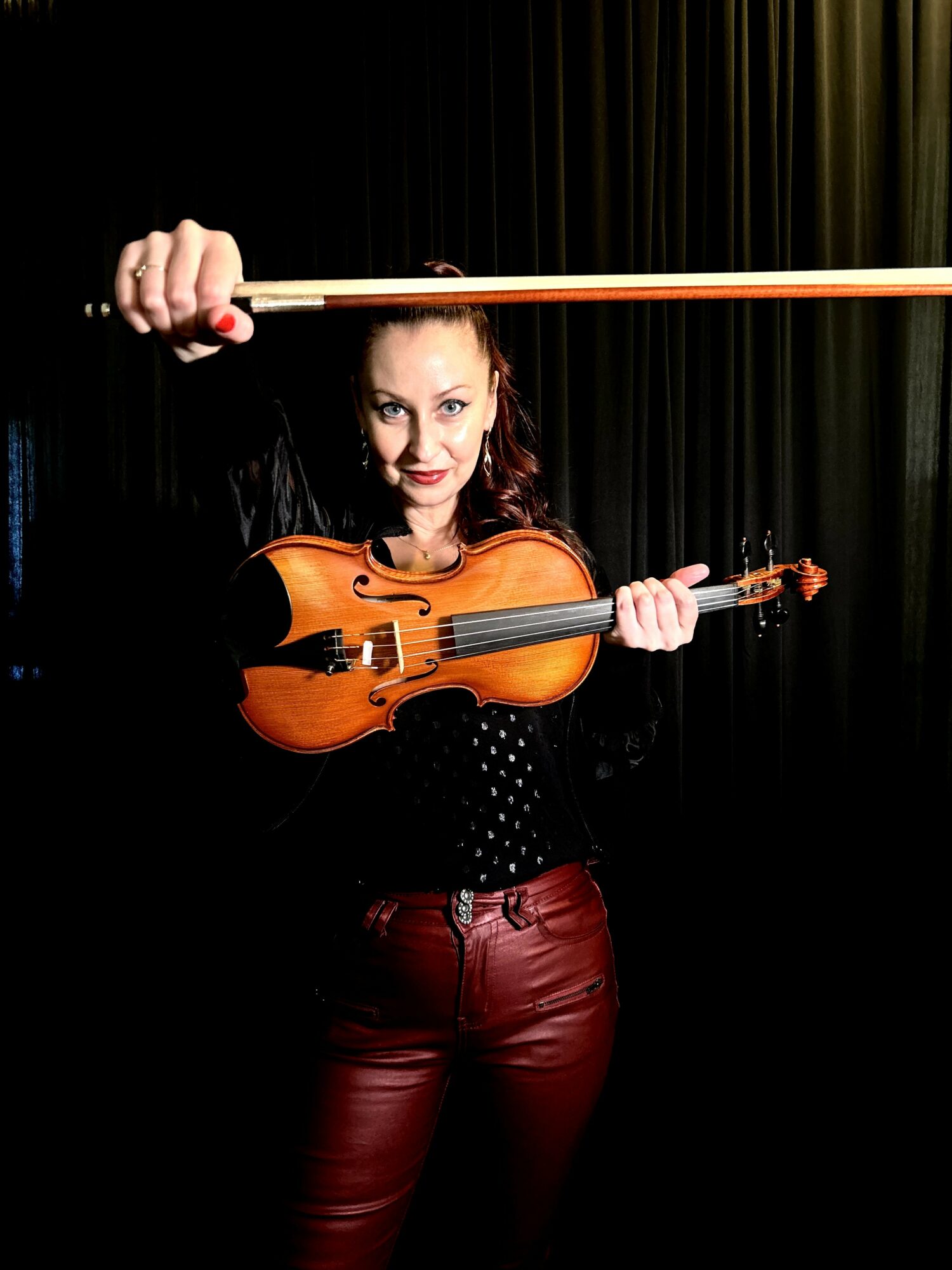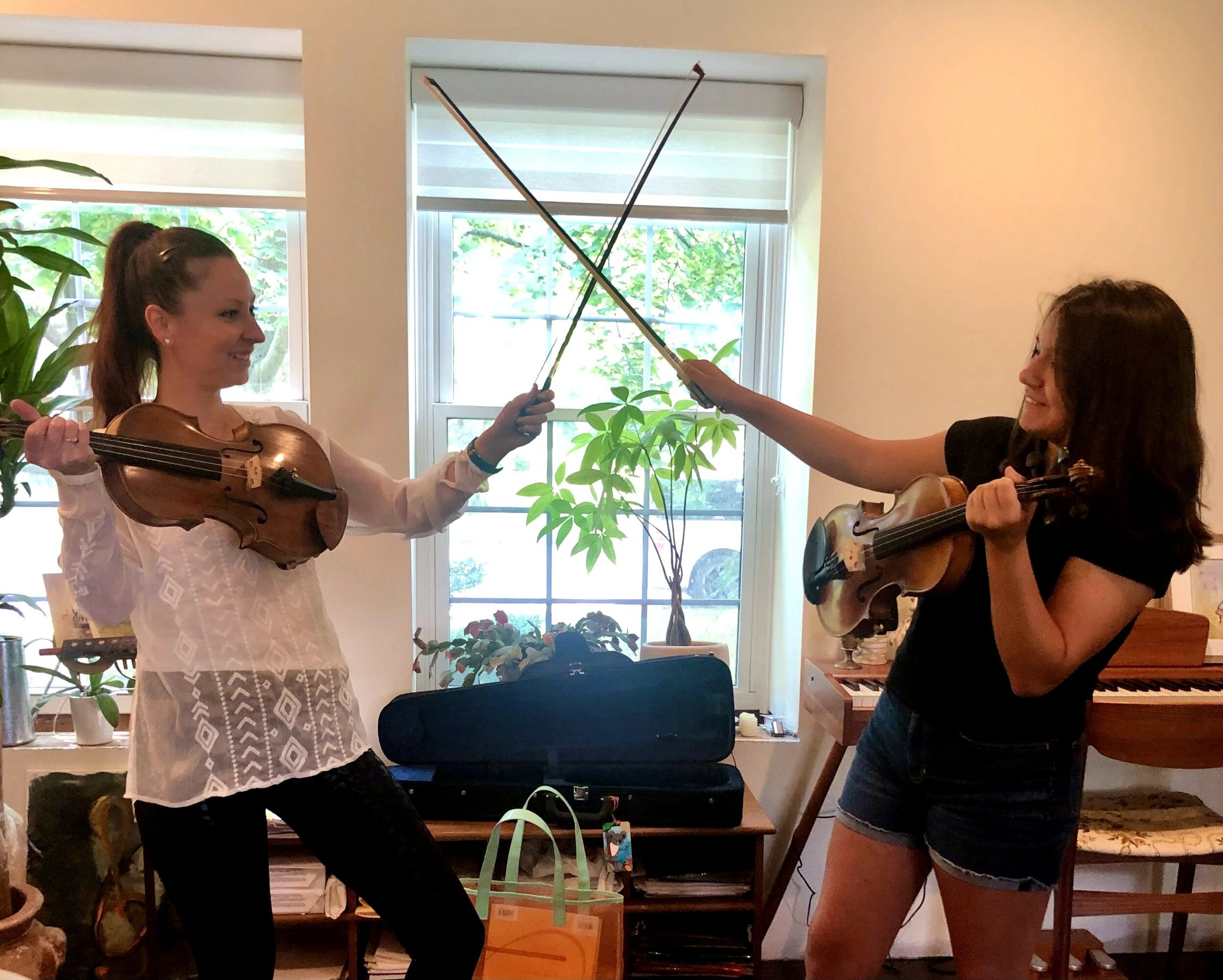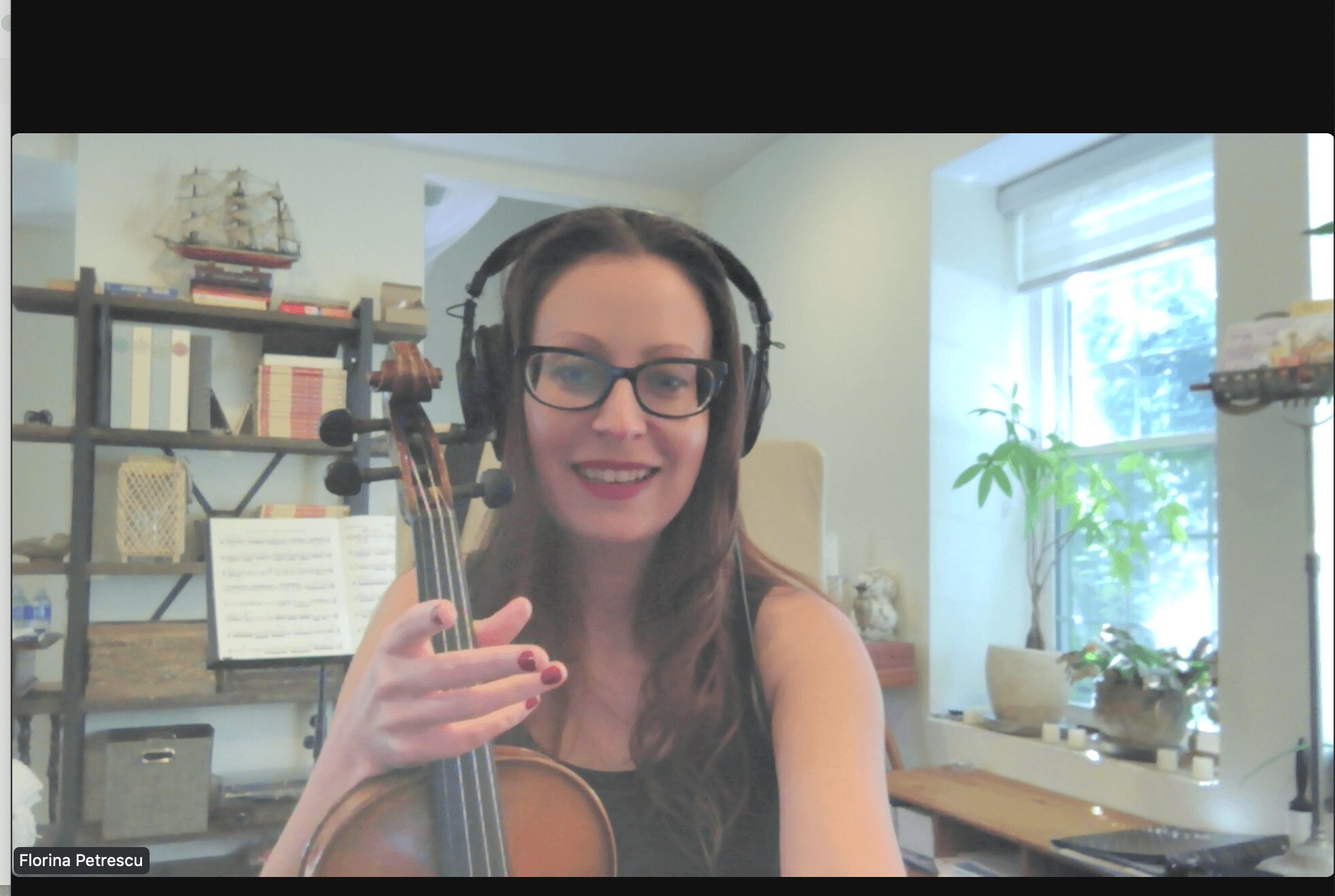

We’re looking forward to introducing you to Florina Petrescu. Check out our conversation below.
Hi Florina, thank you for taking the time to reflect back on your journey with us. I think our readers are in for a real treat. There is so much we can all learn from each other and so thank you again for opening up with us. Let’s get into it: What do you think is misunderstood about your business?
People often think my business is just about teaching violin, but it’s not. It’s about teaching life skills through music — discipline, focus, creativity, and ownership — in a way that makes sense for today’s kids. The biggest misconception is that music lessons are simply about learning an instrument. In reality, when they’re done right, they shape how a young person approaches challenges, how they think, and how they see themselves.
Another misunderstanding is that the traditional way is always the best way. Many assume that if a student isn’t thriving, it’s because they’re lazy or untalented. I don’t believe that. I think it means we haven’t adapted our approach to meet them where they are. That’s why my business blends classical excellence with modern, engaging methods — so students stay inspired while still building a solid foundation.
Yes, I teach violin. But what I’m really building is confidence, curiosity, and a lifelong relationship with learning.
Can you briefly introduce yourself and share what makes you or your brand unique?
I’m Florina Petrescu — professional violinist, teacher, and founder of Florys Violin Art. I perform in orchestras, chamber ensembles, and special events, but my deeper mission goes beyond the stage.
I believe the education system — including music education — is behind the times. Kids today need a different way to learn, one that matches the fast, visual, and interactive way they consume information. My mission is to make violin learning relevant, exciting, and accessible for the next generation.
That vision has sparked what I call The Bow Rebellion — a movement to challenge outdated methods and reimagine how music is taught. Through my academy and social media presence, I create clever, disruptive content that blends music skills with life lessons, helping students not just play notes but build ownership, discipline, and creativity in a modern way.
Amazing, so let’s take a moment to go back in time. Who were you before the world told you who you had to be?
Before the world told me who I had to be, I was a curious, fearless kid who saw the violin as pure magic. I didn’t think about competition, careers, or what “success” was supposed to look like — I just wanted to play, explore, and make sounds that moved people.
Then I entered the classical music system, and suddenly it was about perfection, comparison, and living up to other people’s expectations. I became good at playing the game, but somewhere along the way, the joy got buried under the pressure.
It’s taken me years to strip away what didn’t belong to me and return to that fearless kid — only now, I have the skill and perspective to protect her. That’s why I teach the way I do today. Kids grow up in a world that moves faster and demands more than ever, and if we don’t give them a way to learn that sparks curiosity, creativity, and ownership, we risk losing that magic for them too. My work is about protecting it.
What did suffering teach you that success never could?
Suffering taught me perspective. Success can make you feel invincible, but it doesn’t always show you what really matters. Struggle — whether physical, emotional, or professional — strips away the noise and reveals what’s worth holding onto.
For me, those difficult seasons showed that joy in music doesn’t come from applause, titles, or comparisons. It comes from connection — to yourself, your audience, and the people you teach.
Those harder years also gave me empathy I never could have learned from winning alone. Now, when I teach, I don’t just see technique or talent — I see the person. And often, the most important thing I can give a student isn’t another scale, but the belief that they’re capable of more than they imagine.
So a lot of these questions go deep, but if you are open to it, we’ve got a few more questions that we’d love to get your take on. What are the biggest lies your industry tells itself?
One of the biggest lies in music education is that kids should learn the same way we did decades ago, and if they fail, it’s their fault. The truth is, the world they’re growing up in is completely different — fast, visual, interactive — and yet we’re still teaching as if nothing has changed. We act like repeating outdated methods is a badge of tradition, when in reality it’s a recipe for losing their attention and their potential.
Another lie is that success in music is defined only by perfection — the flawless performance, the perfect competition score. That mindset kills curiosity and turns music into a pressure cooker instead of an art form.
I believe our job as teachers is to adapt, not cling to the past. That’s why my work now is about creating resources and an online academy that meet students where they are, using the tools and formats they actually respond to — without lowering the artistic standard. The goal isn’t to make music easier. The goal is to make learning it relevant again.
Okay, so let’s keep going with one more question that means a lot to us: What is the story you hope people tell about you when you’re gone?
I hope people say that I made music feel alive again. That I didn’t just teach notes and technique, but that I helped people discover a part of themselves they didn’t know they had. I hope they say I made them feel seen, that I believed in them when no one else did, and that I showed them another way was possible when the old way wasn’t working.
I want my story to be about more than concerts or titles — those fade. I want it to be about connection. About taking something as old as the violin and proving it can still be exciting, relevant, and personal in a modern world. And I want people to remember that I didn’t wait for permission to change things. I built what I believed was missing.
If they remember that — and if even one student carries that belief forward into their own life — then I’ve done my job.
Contact Info:
- Website: https://www.florysviolinart.com
- Instagram: @thebowrebellion
- Facebook: https://www.facebook.com/FlorysViolinArt/
- Youtube: https://www.youtube.com/@thebowrebellion
- Other: Shop: (coming soon) https://florysmusicshop.com/
Violin Academy: (coming soon) https://thebowrebellion.com/
Tik – Tok @thebowrebellion














